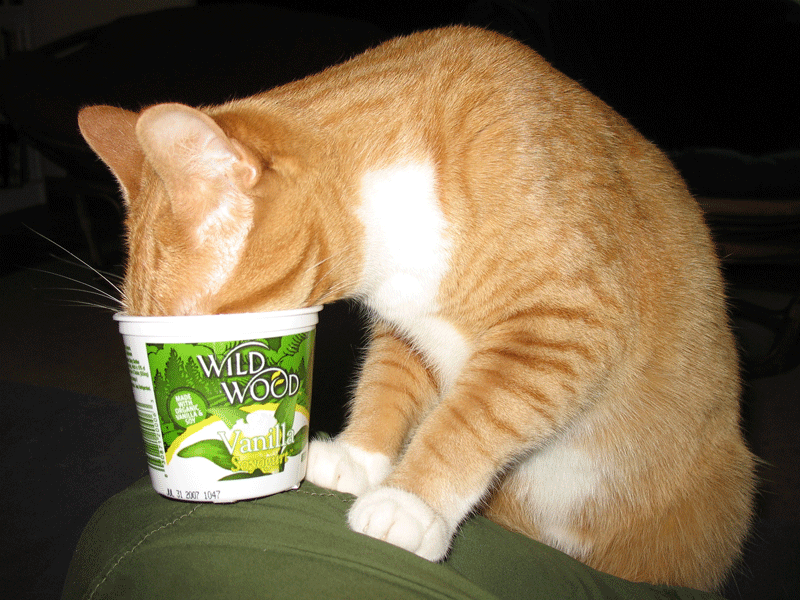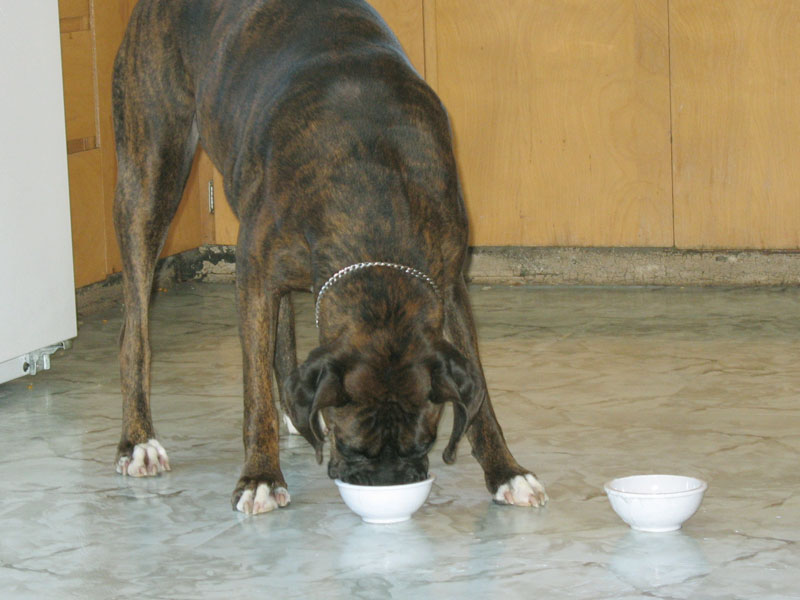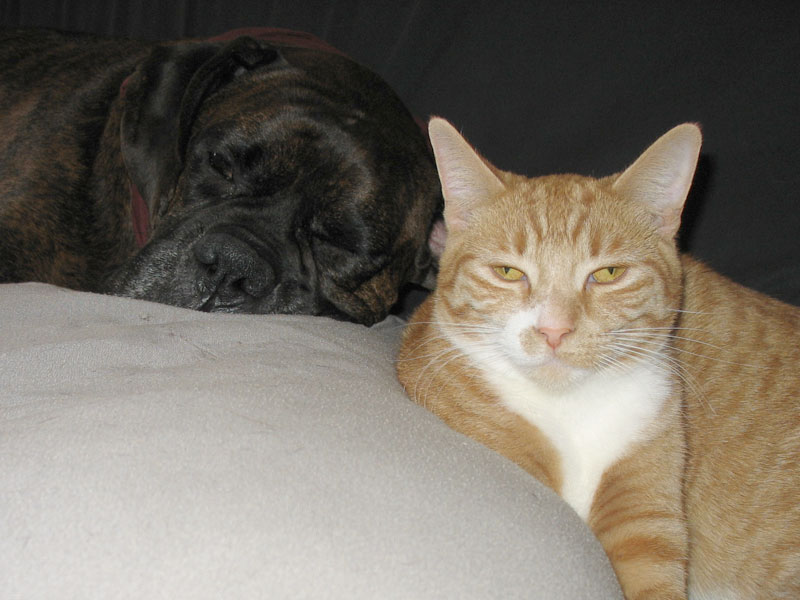When you choose not to consume animal products for ethical and moral reasons, and then choose to have companion animals live in your house and eat the food you buy for them, you have no choice but to question what to feed them. You’ve seen “dog food” and “cat food” your entire life, assuming you live in a developed area of the world where your supermarket has at least a partial aisle of food dedicated to dogs, cats, and other housepets.
Take a look at the ingredients you are feeding your animals – no, really, read the ingredients. Most likely, the ingredients start with a “meat by-product,” followed by corn meal, rice/wheat/soy, fat, and artificial flavors. Meat By-Product. I know someone who actually found a beak in a dog treat. No, “meat by-product” does not mean chicken breast, cow liver, turkey leg, or pig thigh – it generally refers to the part of the animal that humans do not consume (eyes, brains, bones, beaks, lungs, ick), and often comes from animals that were “downed” before slaughter, found dead on the side of roads, or were once house pets who have passed on.
Yeah, I’ve been thinking about this stuff for a long time. And that’s why I have two healthy, happy, vegan dogs. They’re eating Nature’s Recipe Vegetarian Formula food right now, but I have a bag of Natural Balance Food that I may try and switch them over to (Puck has some allergies that we have yet to determine).
So, we just got a cat. Now what? After reading article after article about vegetarian cats, I came to the conculsion that it was the best thing for the cat to feed her meat. Hell, the Vegetarian Society even made it sound like cats should have meat in their diet!
The next question became, “If we have to buy meat for our new cat, what company are we going to buy it from?” We went with PetGuard, but now I’m starting to think that Pet Promise may have been the better option, as they favor smaller family farms and more favorable conditions for the animals.
With my “choose the best meat supplier for the vegan buyer” dilemma, I decided to search the Internet for “ethical cat food”, “cat food for vegans”, and things like that. I came across a book:
Obligate Carnivore: Cats, Dogs, and What it Really Means to be Vegan
I bought the book (not from Amazon, because they told me it would take 6 weeks to ship!) after reading through the online-available pages from Vegan Freak: Being Vegan in a Non-Vegan World, which cites Obligate Carnivore. I’m sure it will be a good read, and will definitely give me something to think about.
One caveat: male cats are more likely to develop urinary tract infections than female cats, and the pH of the cat’s food is directly linked to the probability that the cat will develop a urinary tract infection. Male cats switching to a vegan diet should have their urine tested for pH, so their diet can be altered accordingly. For someone who cares as much about their cat as they do about their reasons for being a vegetarian (or vice-versa), I would imagine that this wouldn’t be an issue – pH tests are simple to perform and can be requested at any vetrenarian’s office. It seems that the biggest reason “vegan cats” have been discouraged is simply because people do not take the time to properly take care of their animals.
We’ll see. I’ll read the book. Maybe I’ll be enlightened; maybe I’ll continue feeding her what she’s eating now. Either way, I’m not going to throw away the cat food that we’ve already purchased, but maybe even finding a 50/50 balance would be a step in the right direction. After all, a vegetable diet rich in all of the nutrients my cat needs has got to be just as good as the processed diet made from hormone-pumped, antibiotic-fed animals that my cat would never eat had she grown up in the wild (no, cats don’t just wander around killing chickens and cows and fish) – right?



